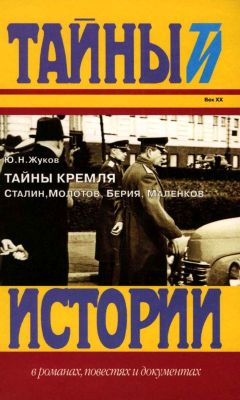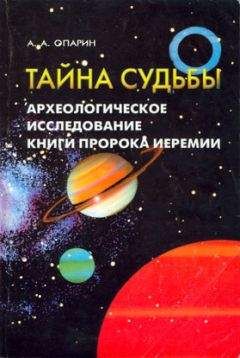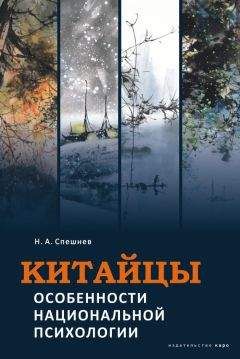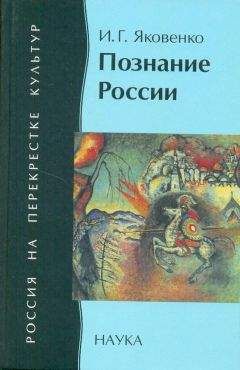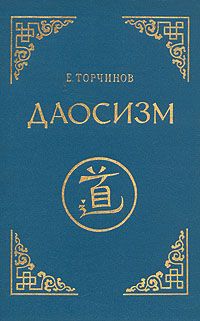Kim ManChoong - The Cloud Dream of the Nine
The young lady bowed low and said: “Since your Majesty has so decided, this humble girl will, I fear, die under the weight of too great favour. My one desire is that your Majesty will withdraw the command, and let this obscure child fly away in peace.”
The Empress said: “I have made known my wishes to His Majesty the Emperor, and he will definitely decide it. You must not be headstrong in the matter.”
She called the Princess and made her come forward near to Cheung See.
The Princess, in ceremonial robes, shining in glory, sat by her side.
The Dowager laughed and said: “You have wished to have Cheung See for your sister, and now it has come to pass. No one could tell who is the elder, you or she. Have you no regrets now?” She took Cheung See by the hand to make her her adopted daughter. She then stood her close up to Princess Orchid. The Princess, greatly delighted, thanked her mother, saying: “Your Highness's decision is the dearest in the world. You have brought all my fondest wishes to pass. How can I tell you of the joy that now fills my soul?”
The Dowager gave Cheung See a great and magnificent reception, and as they talked of the old poets she said: “I have heard from the Princess that you are skilful with the pen and at poetic composition. It is all quiet here in the palace, and with the delights of spring about us, will you sing for me once? Do not be backward now, but cheer me, my child. Among the noted ancients there was one famous scholar who could write a verse before the quick of foot could go seven courses; can you do that, my child?”
Cheung See made reply: “Now that I have heard your gracious command, I must try with all the skill I have to please your Majesty.”
The Empress picked out from the palace maids those most nimble, made them stand in a row in front of the main hall, gave out the subject and made ready a signal.
But Princess Orchid called to her and said: “Mother, you must not have Cheung See write all alone; I'll join her and try also.”
The Dowager, pleased with this, gave permission. She said: “Daughter, your wish is a proper one.” She then thought of a subject. It was late spring. The peaches were in bloom outside the pavilion railing, and the happy jay-birds were calling as they sat upon the branches. The Dowager pointed to these and said: “I have decided upon your marriage, and yonder jay upon the high tree-tops announces his delight. He is a lucky omen. Let us make this the subject, The Peach Flower and the Happy Jay-bird.” They were to write a verse before the seven courses could be run, and each verse was to contain some reference to their happy marriage.
She told the maids-in-waiting to have everything in order, pen, ink, and so on, for the Princess and Cheung See. At the given signal the women in front of the main hall started on their way, but fearing that the two would not be able to finish while the seven courses were being run, they looked back at them and took their steps slowly. The two pens flew like swift wind or a sudden squall of rain. Off the lines were dashed, and they were done before the women had completed five of the courses.
The Dowager read what Cheung See had written, and it ran thus:
"The swift wind rocks the tipsy peach
Before the Palace Hall,
While from the height, far out of reach,
There sounds the mavis' call.
The dancer's swing and silken fold
Awake the happy day,
While in the group a magpie bold
Has found her wondering way.”
The Princess's verses ran thus:
"In the court of the Palace a hundred buds blow,
As the jay-bird sweeps in with his spirit aglow.
He bends his strong back o'er the wide Milky Way,
To bear two small dots who are coming to stay.”
The Dowager read these and sighed, saying: “These two are the spirits of Yi Tai-baik and Cho Cha-gon. If we could mark women as literary graduates, we should rate them first and second in the contest of the year.” So she exchanged the two compositions, giving one to each, and each admired and praised the other.
The Princess said to Her Majesty: “I have managed to fill out my couplets, but the sentiment is one that might be easily expressed by anyone. Cheung See's, however, are beautifully done. I cannot attain to such excellence.”
“That is so,” said the Empress; “but yours too, dear, is very well done, and everyone would admire it.”
[CUTLINE: Two in One Palanquin: The Poetry Contest]
Chapter XIIYang's Supreme Regret
AT this time the Emperor came in to make his salutations before the Empress Dowager, and the Empress bade the Princess and Cheung See make their escape into a neighbouring room. She spoke to the Emperor, saying: “In reference to the Princess's marriage, you know I made the Cheung family return the gifts that had been sent, and this has caused damage to the Imperial prestige. To make Cheung's daughter a wife along with the Princess would be refused by the Cheungs themselves; to make her a mistress would seem cruel and hard. To-day I have called her, and she is indeed lovely and gifted with great ability, a fitting sister for the Princess. Because of this I have adopted her and have decided to wed them both to Yang So-yoo. What do you think of it?”
The Emperor was greatly pleased and congratulated her, saying: “This is a right and noble decision, and wide as the sky in its justice. In such generous treatment and bountiful favour as this no one has ever equalled my mother.”
Then the Empress called Cheung See so that she might meet the Emperor, as she was now his sister. He made her come up and sit upon the dais, while he said to the Dowager: “Since Cheung See has now become a sister of the Emperor, why should she still wear the dress of the common people? ”
The Empress replied: “As there is no command of the Emperor to that effect she declined to put on ceremonial robes.”
Then the Emperor said to the chief of the palace ladies-in-waiting: “Bring a roll of figured silken paper.” This Chin See, the phoenix, brought. The Emperor raised the pen and made as if to write. Then he said to the Empress Dowager: “Since you have already made Cheung See a princess, you must, of course, give her the family name of our house.”
The Dowager replied: “I thought at first to do so, but learning that Justice Cheung and his wife are old people, and that they have no other children, I felt desirous on their behalf that she should carry on their family name, and so I decided to leave her surname as it is.”
Then the Emperor wrote the following in large characters with his own hand. “I approve of the divine wish of Her Majesty the Empress Dowager, and record Cheung See to be her adopted daughter. Her name is Princess Yong-yang, or Blossom.” When he had written this he stamped it with a pair of palace seals and gave it to Cheung See, and he ordered the palace maids to dress her in royal robes.
Cheung See descended from the dais and expressed her thanks.
The Emperor then decided the order of precedence between Princess Orchid and Princess Blossom. Blossom was a year the senior of Nan-yang, but she would not have thought of taking precedence of her.
The Empress said: “Princess Blossom is now my daughter, and for the elder to be first and the younger second is the proper order. There is no readjusting of the place between brothers and sisters.”
Blossom bowed low, and touching her brow to the ground, said: “The order appointed pertains only to the future, why should we not ignore it to-day?”
The Dowager said: “In the time of the Spring and Autumn Classic, the wife of Cho-chi, although the daughter of Prince Chin-moon, gave up her place to the first wife who was chosen. Much more should my daughter, as you are her elder sister, give up without a question.”
Still Blossom persisted long in declining the place. Then the Dowager settled it: “We have decided, and it is settled according to seniority.” And from that time forth all in the palace called her Princess Blossom. The Empress showed the verses that the two had written to the Emperor, and he praised them, saying: “They are both very pretty, but Blossom's verse has followed the order of the Book of Poetry and places all the credit with Orchid. She has observed the highest refinements of good form.”
“True,” replied the Dowager.
The Emperor again said: “Since you love Blossom so greatly, for truly nothing was ever before seen equal to it, I too have a favour to ask of you.” He then told of the palace-maid Phoenix, and of what had taken place in regard to her affair. Said he: “Her case is indeed a very pitiful one. Though her father died from his own fault, her forefathers were all faithful ministers of state. If we take all the circumstances into account and make her a secondary wife to Yang, would it not be a kindness on your part? I pray you so to do.”
The Dowager then looked toward the two princesses, and Orchid said: “The palace-maid Phoenix told me her story some time ago. She and I are now fast friends and never wish to part. Even though you should not consent to order it, my wish would already be recorded thus.”
Then the Empress Dowager called Phoenix and said to her: “The Princess desires that you should keep each other company through life and unto death. I therefore appoint you a secondary wife to General Yang, so that your wishes may come to pass. In future let all your heart go into repaying the Princess for her kindness to you.”
Chin See, overcome with gratitude, shed tears and spoke her thanks.
The Empress went on: “The marriage of the two Princesses is now happily decided upon, and a jay bird of good omen comes to confirm it. I have already had the Princesses write for me, and now that you, too, have found a place of refuge and have the same happy prospect in view, you must write for me as well.”
At once Chin See wrote and handed her verse to the Empress. It read:
"The happy jay that shouts his mirth
Athwart the Palace halls,
Has seen the spring on gilded wing,
Step forth within his walls.
So, too, the humble phoenix bird
Will long no more to roam,
But with the four, she'll meet once more,
And join the happy home.”
The Empress along with the Emperor read the verses and in delight said: “Even Sa Do-on who wrote concerning the willow catkins could not surpass this. The verse also follows the Book of Poetry and draws a clear distinction between the first and second wife, most sweet and becoming.”
Princess Orchid said: “The subject and material from which this verse is drawn are limited, and we two sisters had already written all that was to be said about it. Poor Chin See had nothing left on which to place her hand, and yet how pretty it is.”
The Dowager replied: “Since ancient times the most noted writers among women were Pan Heui, Chai Nyo, Princess Tak-moon and Sa Do-on, these four only. Now three girls of unsurpassed ability meet in one and the same dwelling-place. It is surely a marvellous sign.”
Orchid replied: “Princess Blossom's waiting-maid, Cloudlet, is also greatly gifted with the pen.”
At this point the day began to draw late and the Emperor withdrew to the outer palace. The two Princesses retired and slept in their rooms, and when at the earliest dawn the cocks crew, Blossom went in and made her salutation to the mother, and asked permission to withdraw, saying: “When your child came into the Palace, my parents must certainly have been anxious and full of wonder. May I please withdraw for a little, see them, and make my boast to all my kin of the grace of your High Majesty and the loving kindness and beauty of my sister Orchid? Kindly grant me this favour.”
The Empress said: “My child, how can you think of leaving me so easily? I have something to consult about with your mother, and so shall make request that she come here in audience instead.”
The Cheungs, when they heard what the servant had come to tell, were somewhat relieved from their fears, and a feeling of thankfulness took possession of them. Suddenly the command came for the lady Cheung to report in the palace.
The Empress met her, took her by the hand, and said: “My taking possession of your daughter is not only because I love her beauty, but for the sake of Princess Orchid's marriage. Once having seen her lovely face I can never let her go again, so I have made her my adopted daughter and the elder sister of Orchid. My thought is that in a former existence she may have been my daughter, and that she has now come to be yours. Since Blossom is a Princess, one ought really to give her the name of the Imperial household, but I have thought of your having no son, and so have not changed her name. You will know by this how deeply I love you.”
The lady Cheung could not express the thanks that filled her soul. She bowed low and said: “I, your humble subject, had a daughter born to me late in life whom I loved as one loves only gems and pearls. Her marriage proposals failed of fulfilment and we sent back the bridegroom's presents. My soul lost all its sense of life, and my bones seemed broken within me. My one wish was to die quickly and no longer see her sad and desolate plight. Unexpectedly the dear Princess came to our home and bent her lovely form to our low conditions, making friends with my humble daughter. Then she took her with her to the Palace and made her the recipient of undreamed of honours. This is indeed making green leaves to sprout forth on the dry tree, and waters to flow afresh along the parched bed of the stream. All my heart and soul and strength would go forth to requite, if possible, one of the thousand favours and kindnesses of your Majesty, but my husband is an old man and has many ailments of body. While his heart would desire it, still he is too old to enter upon the duties of office, and so make some small return. I, too, am feeble and am already a neighbour of the spirit world, so that I could not serve as palace-woman even to do menial labour. What can we possibly do to show our gratitude for the kindness heaped upon us by your Imperial Majesty? The only way I know is to let the grateful tears fall as rain.” She arose and bowed again, and then prostrated herself and wept till her sleeves were soiled with tear-drops.
The Empress, moved with pity, sighed and said: “Since Blossom is now my daughter your ladyship must never take her away.”
The lady Cheung replied: “How could I think of taking her away from you? But the fact that we cannot meet together and speak the praises of all your Majesty's worth is my only disappointment.”
Here the Dowager laughed and said: “Before the marriage ceremony she may not go out, but after that, of course, she may go. Do not be anxious about that. After the wedding Princess Orchid shall be put into your care, too, and you must look upon her just I do upon Blossom.” She called Orchid that she and lady Cheung should meet again. The lady Cheung several times spoke of her regrets at the way in which she had received the Princess when she came to call at her home.
The Empress said: “I have heard that you have among your waiting-maids a little one called Cloudlet; I should like very much to see her.”
